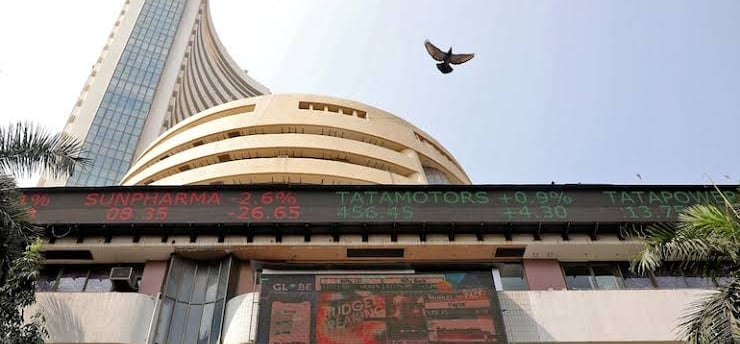Add your promotional text...
BSE and MCX Stocks Soar: The Impact of SEBI's New F&O Regulations
Synopsis: On October 3, shares of BSE Ltd and Multi Commodity Exchange of India (MCX) rose by up to 8% following the announcement of SEBI's new futures and options regulations, which are more lenient than expected. These changes, set to take effect between November 2024 and April 2025, include reduced expiry-day margins and adjusted lot sizes. While the immediate market reaction is positive, analysts predict potential declines in retail trading volumes in the long run. This blog explores the new regulations, stock performance, and their implications for investors in the evolving market landscape.
VIEWS ON NEWS
By Monika Agarwal
10/3/20243 min read


On October 3, shares of BSE Ltd and Multi Commodity Exchange of India (MCX) experienced significant gains, with increases of up to 8%. This surge followed the announcement of new futures and options (F&O) regulations from the Securities and Exchange Board of India (SEBI), which were perceived as more favorable than initially anticipated.
Overview of SEBI's New Regulations
The market regulator, SEBI, introduced six new regulations aimed at streamlining the F&O landscape. These rules encompass a range of measures, including the requirement for upfront premium collection and restrictions on the weekly expiration of index derivatives. The implementation of these regulations will occur in phases, starting from November 20, 2024, and extending through April 2025.
Key Changes
One of the most noteworthy changes is the reduction in the increase of expiry-day margins, which is now set at 2% instead of the previously expected 8%. Additionally, the proposed hike in lot sizes has been adjusted to an increase of 2 to 3 times, as opposed to the earlier suggestion of 3 to 4 times.
These adjustments have led to a more supportive environment for trading on these exchanges, contributing to the bullish sentiment among investors.
Market Predictions and Analyst Insights
While the immediate market reaction has been positive, analysts are taking a cautious approach. Citi has forecasted a gradual decline in retail trading volumes, estimating a nearly 35% reduction in index options premium turnover for the National Stock Exchange (NSE), which competes directly with BSE.
Similarly, IIFL Securities predicts that NSE’s options premium turnover may be affected by 35% to 40%, while BSE could face a decrease of 15% to 20%. Jefferies has also expressed concerns, suggesting that the phased implementation of these new regulations over the next three to six months may result in a measured tightening within the market.
Current Stock Performance
As of 10:34 AM on October 3, BSE shares were trading 8% higher, reaching Rs 4,193.60 on the National Stock Exchange (NSE). The stock achieved an all-time high of Rs 4,200 during early trading. Impressively, BSE’s share price has soared by 91% this year, significantly outperforming the Nifty index, which has recorded a return of 18% over the same period. Over the past 12 months, BSE shares have skyrocketed by 224%, effectively tripling investors’ capital, while the Nifty has risen by 32% in the same timeframe.
Meanwhile, MCX shares were trading over 1% higher at Rs 5,889.35 on the NSE. Year-to-date, the stock has surged by 85%, and it has more than doubled over the past year, outperforming Nifty’s returns by a substantial margin.
Transaction Charges Impact
Both exchanges have also been on an upward trajectory since they raised and introduced new transaction charges for brokers across various segments, effective October 1, 2024. BSE has increased transaction fees for Sensex and Bankex options contracts to Rs 3,250 per crore of premium turnover, while MCX has adjusted its transaction fees for futures and options contracts. These changes reflect the exchanges' strategies to enhance revenue streams amid evolving market dynamics.
In summary, the recent rally in BSE and MCX shares can be attributed to SEBI's newly introduced F&O norms, which have provided a more favorable trading environment than initially expected. While the immediate market response has been optimistic, analysts caution about the potential long-term impacts on trading volumes, particularly in the context of retail participation.
As these regulations are implemented over the coming months, the market will be closely watching the performance of both exchanges and how they adapt to the evolving landscape. For investors, staying informed and consulting with certified experts is crucial before making any investment decisions, as market conditions can change rapidly.
Disclaimer: The views and investment insights expressed by experts on Finbrook.in are their own and do not necessarily reflect those of the website or its management. Users are advised to consult certified professionals before making any investment choices.
